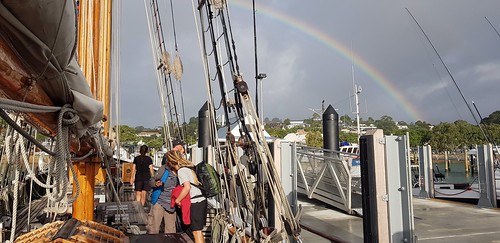Ishments. The desire to start drinking was driven partly by curiosity
Ishments. The wish to begin drinking was driven partly by curiosity, but also by a social conformity and a view that `everybody else was doing it’: I: R: I: R: What or who had the largest influence more than your drinking then when you started drinking at these sixth kind parties Why did you do it Simply because my buddies had been basically. Was it stress to do it No it was my choice; I never got pressured into doing it. I just wanted to match in with what every person else was undertaking. (ID 3, F, aged 9)Notably, even so, the influence of peer behaviour diminished somewhat as young men and women moved by way of adolescence. Young people still described an influence of their mates, or perhaps a additional subtle type of influence characterised by `going along with’ the behaviour of their buddies, but young people today learnt from their experiences, and felt freer to exert their very own options about drinking behaviour: I: R: What do you assume are the main motives that you drink then I guess it is simply because everyone else does, so you have a tendency to just join in do not you. (ID 20, F, aged 9)Sometimes you go out using the wrong frame of mind I suppose and my friend’s purchased a pint and after that I will buy a pint, I will sort of drink it and they say they’ve completed theirs and I’m like, oh I’ve got to finish mine. Go and get another pint and I’d try and preserve up with them cos they get out a lot more typically and I get extra drunk than they do. (ID 27, M, aged 9) I: R: Do they ever try and get you to drink much more No. PubMed ID:https://www.ncbi.nlm.nih.gov/pubmed/25620969 It was often like in the age exactly where we wanted to like, I never know if it was to fit in or to be cool or whatever. They were just like, `oh we’ve got to accomplish it mainly because they do it’, so you’d just do it. But now it’s like no one really cares about that. You just drink if you wanna drink and drive for those who wanna drive definitely. (ID 26, F, aged 9)Many described a greater handle more than their drinking and an awareness of their individual limits, in order to avoid the adverse consequences of intoxication. Therefore, young people today had been producing careful possibilities concerning the kind of drink consumed and pace and volume of drinking,206 The Authors. Sociology of Health Illness published by John Wiley Sons Ltd on behalf of Foundation for SHIL.Peers and young people’s alcohol useirrespective of their friends’ behaviour. In this way, the habitus changed as young folks moved through adolescence to young adulthood to a more measured drinking behaviour, JW74 web evidencing the way in which habitus indicates that dispositions will differ `by social place  and trajectory’ or how these with distinct situations, experiences and histories have gained unique methods of pondering, feeling and acting (Wacquant 20). Consequently, some peer groups incorporated individuals having a diverse range of drinking patterns. In addition, the possibilities of those that abstained from drinking alcohol appeared to reflect their distinct abstinent habitus structured by their influences andor extra responsibilities, as an alternative to an influence of peers and peer norms, per se: I: R: Do you limit what you’ve got Do you place specific controls in to quit you having drunk Fairly frequently I perform on a Saturday morning too so I never go out on Friday nights, I coach rugby, so I have to become up for seven, so it is not a fantastic factor to become coaching when you have got a hangover. Friday is a significant no no, Saturday’s I am at church within the morning and singing and stuff. (ID 9, M, aged 9)Therefore, the structuring function of habitus was evident since the dispositions produced through the habitus (in part.
and trajectory’ or how these with distinct situations, experiences and histories have gained unique methods of pondering, feeling and acting (Wacquant 20). Consequently, some peer groups incorporated individuals having a diverse range of drinking patterns. In addition, the possibilities of those that abstained from drinking alcohol appeared to reflect their distinct abstinent habitus structured by their influences andor extra responsibilities, as an alternative to an influence of peers and peer norms, per se: I: R: Do you limit what you’ve got Do you place specific controls in to quit you having drunk Fairly frequently I perform on a Saturday morning too so I never go out on Friday nights, I coach rugby, so I have to become up for seven, so it is not a fantastic factor to become coaching when you have got a hangover. Friday is a significant no no, Saturday’s I am at church within the morning and singing and stuff. (ID 9, M, aged 9)Therefore, the structuring function of habitus was evident since the dispositions produced through the habitus (in part.
